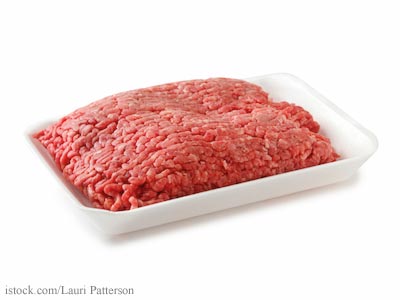Food & Water Watch is asking the USDA’s Food Safety Inspection Service (FSIS) to revoke the recognition of privatized inspection practices used in several countries that export red meat to the U.S. Those countries are Canada, Australia, and New Zealand; government officials there have replaced government meat inspectors with company employees. A petition was filed June 6, 2014.
 These systems have been inspected by U.S. officials and found to be flawed. The Canadian High Line Speed Inspection System had numerous violations for improper sanitation, humane slaughter violations, and lack of enforcement of regulations. The Australian Expert Meat Inspection System is problematic; an email in December 2012 from Dr. Langbridge, Veterinary Counsel for the Australian Meat Industry Council said that “I am informed that the US made it clear that Australia is now the worst performer of all their exporting countries,” according to the petition.
These systems have been inspected by U.S. officials and found to be flawed. The Canadian High Line Speed Inspection System had numerous violations for improper sanitation, humane slaughter violations, and lack of enforcement of regulations. The Australian Expert Meat Inspection System is problematic; an email in December 2012 from Dr. Langbridge, Veterinary Counsel for the Australian Meat Industry Council said that “I am informed that the US made it clear that Australia is now the worst performer of all their exporting countries,” according to the petition.
Wenonah Hauter, executive director of Food & Water Watch said in a statement, “the basis for FSIS’s equivalency determinations for meat imports is shaky at best. But using the U.S. pilot program HIMP (which is only in place in five hog slaughter facilities) to approve meat imports for entire countries using privatized inspection is unconscionable. Moreover, USDA has so far failed to prove that privatized inspection even works.”
U.S. inspection programs currently require, by law, that USDA employees inspect meat slaughter facilities. But the agency has declared the privatized inspection systems in those other countries to be equivalent to the U.S. system. “The risk to U.S. consumers from USDA’s decision to allow privately inspected meat to enter the United States is real,” Hauter continued. “In the fall of 2012, XL Foods’ operation in Canada was implicated in the largest meat recall in Canadian history while operating under a high-speed privatized inspection program.” Eighteen Canadians were sickened with E. coli O157:H7 linked to meat processed in that plant, and 2.5 million pounds of beef exported to the U.S. was recalled.
The petition states that there are problems at these privatized inspection plants, including persistent fecal contamination. The European Union is banning meat imports form Australia because of the “inherent conflict of interest” in having company employees inspect food for safety.




